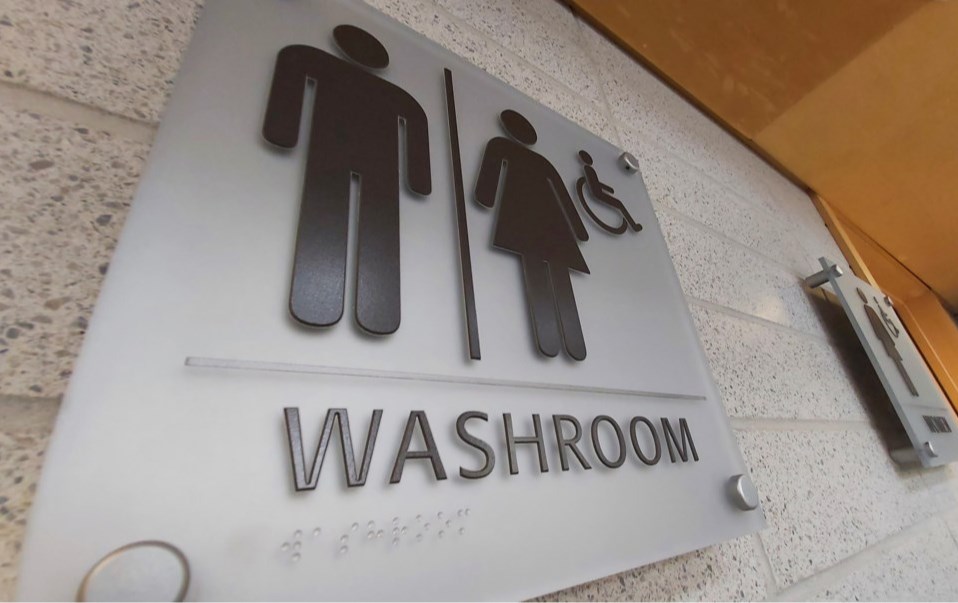You never know when nature might call. And not everyone has access to a washroom when they need one.
The Guelph Lab, a collaboration of The College of Social and Applied Human Sciences, University of Guelph and the City of Guelph, is working with the university’s Department of Geography, Environment and Geomatics to identify areas in the city without public washroom access so that facilities can be considered for the future.
Guelph Lab facilitator Sam Laban says the study reflects the need to consider inclusion and equity in how the city delivers programs and services. The goal is to make recommendations to improve access to public washrooms in the city for everyone.
Those include washrooms in parks, libraries, community centres and at city hall.
“One of the motivations behind this project was in response to the clean-up required in and around the downtown when people don’t have a place to go,” Laban said.
“If they don’t have a place to go, then they have to find other places outside, on the street, in alley ways, green spaces or front yards.”
The project is partly in response to feedback from businesses and organizations as well as from city staff.
“It’s about equity and who’s impacted when washrooms are not available,” Laban said.
According to research project manager Edith Wilson, access to washrooms can affect people’s activities and enjoyment of public spaces and is of critical importance for people with disabilities and people experiencing homelessness.
“The conversation about washrooms can often get collapsed into a stereotype where people are only thinking about homelessness or drug users,” Wilson said.
“But really it is a human right to have public access to washroom facilities. It’s a matter of dignity.”
The project team visited the 24 permanent public washrooms currently available across Guelph and combined the information with city data to create two maps of public washrooms. The maps are shared in a report, Access to public washrooms in Guelph: what’s open and when.
Both maps show what types of washrooms are available, including permanent or portable, accessible or not, when washrooms are available at different times of year, what times the washrooms are open, and what days of the week washrooms are available.
Some of the findings determined that seven of the 24 washrooms visited are not gender neutral, and two of the permanent washrooms do not include an accessible washroom. There are no permanent washrooms open during the night, and washrooms in the downtown core are limited.
“We looked at the entire geographical area in the city of Guelph. In the downtown area, there are only three public washrooms available, including the library, city hall, and Market Square, but only when the splash pad, ice rink, library, or city hall are open,” Wilson said.
“So, most of the time, there’s no permanent 24-hour, seven day a week washroom facility, downtown.”
Wilson says municipalities such as Elora have installed public washrooms that are stand-alone and self-cleaning, an idea that is becoming more popular.
“Generally, cities in this part of Canada are pretty far behind in terms of public washroom provision,” she said.
“Guelph has similar problems. In some European cities, people pay to use washrooms, and some are stand alone in the middle of the street. There has to be some kind of strategy for providing public sanitary services.”
Laban says most permanent washrooms are closed during the winter months.
“This impacts a diverse range of people that use public spaces in Guelph, whether that’s parks, trails or downtown, where people go to experience public life and be part of their community but need access to washrooms across the city.”
With the mapping phase now complete, the project team will begin to conduct interviews to gain different perspectives, especially from those who are most affected by a lack of access to washrooms.
“The next steps are to interview residents and frequent visitors to Guelph including employees in the city We want to know about their experiences accessing public washrooms in Guelph,” Wilson said.
“As soon as we have all the data from the interviews, we will comb through it and pull out the main points so that we can use those perspectives to write a report that will hopefully help the city make good decisions about these infrastructure changes.”
People interested in sharing their experiences about accessing public washrooms in Guelph can email [email protected]
Results from mapping and feedback from interviews will be shared in a report to City Council at a future date.
“There are a lot of people who have issues and their lives are affected by the lack of washroom access,” Wilson said.
“We want to highlight the diversity of people that this causes problems for. We want to make sure that we get into the 'nitty gritty' of how it affects people’s lives when there are not enough adequate washrooms in the city.”


.png;w=120;h=80;mode=crop)
